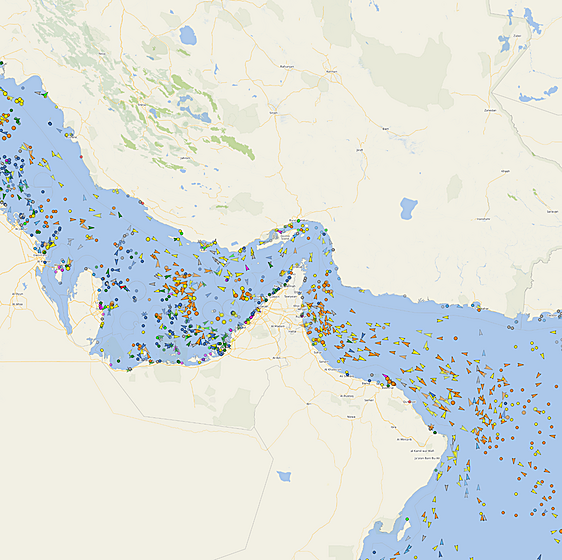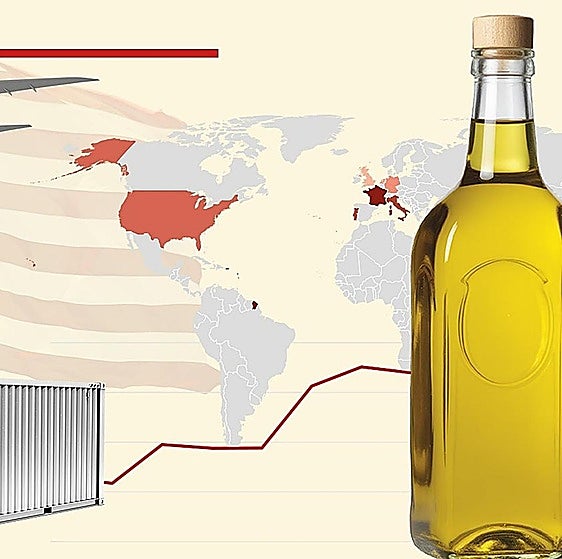Foodie trends for 2023
Healthy eating. Changing lifestyles has seen a move towards vegetarian, ethical and sustainable produce. Here are some of the things to watch out for this year
MANU BALANZINO
Thursday, 5 January 2023, 12:18
In cuisine, as in the world of fashion, trends come and go, driven not only by the demand for new and fresh things, but also by changing lifestyles and the need to relate better to planet Earth and our own bodies. Vegetarian, ethical and sustainable produce and a return to traditional cooking are some of the trends we will see in gastronomy in 2023. But there is more too to discover and enjoy a happy and tasty new year.
Back to our origins
Many people yearn to resample the foods they ate when they were younger. Today's generation cook very little, and the most traditional recipes are being lost in our homes. Fortunately, professional cuisine has taken over and more and more restaurants are offering us the chance to go back to our childhood with dishes from yesteryear.
Vegetarian menus: Even Michelin-starred restaurants such as El Lago (Marbella) offer 100% vegetarian menus with the philosophy of making the most of local produce. Fernando Villasclaras creates dishes such as courgette flower stuffed with spinach and pistachio pesto or roast parsnips with bay, pear and pecan sorbet. Miguel Palma's live lettuce at La Taberna de Mike Palmer (behind Malaga) highlights the reign of green.
New experiences: Going to a restaurant is undoubtedly an experience. Restaurants go one step further and offer menus personalised to the diner's taste. There is no stipulated menu: the customer decides on the dishes they want and the chef adapts them to create small dishes.
Simplicity: The premise is clear: find a good product, cook it to perfection and serve it on a plate. No more is needed. Restaurants such as Verum (Malaga), Erre & Urrechu or Roostiq (Marbella), are committed to simple, quality grilled products.
Sustainability: This means consuming produce from the environment and knowing the ingredients by reading the product labels. Consumers have the power to change the world by making informed food choices. A simple gesture, such as taking bags to the supermarket or going back to paper at the deli, makes all the difference.
Zero waste: When we talk about waste, we always think of the big food companies, but every household in Spain wasted an average of approximately 70 kilos of food in 2021, according to data from the Ministry of Agriculture, Food and Fisheries. In order not to throw anything away, we should try to plan our meals and shopping list.
Shopping basket: The cost of our shopping has seen an increase over the last few months. That's why, according to a Just Eat survey, 64% of users will save the leftovers from their food order. We throw away a lot, we know that, and from now on we will probably make sure we don't waste anything.
Fast but healthy: Fast food conjures up the image of junk food. Today, society is going through a change of mentality towards healthier and more sustainable food. For this reason, consumers are looking for more homemade dishes to take away, leaving behind the classic burgers and pizzas.
Food and drink
Yaupon tea: This drink is made from the leaves of the Cassina, a shrub grown in the southern US. Although it is considered an infusion, yaupon can be a substitute for coffee as it has caffeine but no high acidity.
Sweet and spicy: You'll hear 'Swicy' a few times in 2023, a term that fuses sweet and spicy, a combination of flavours present in oriental cuisine. We can even find chocolate to which a touch of chilli is added. Heinz has launched Honeyracha which blends honey and Sriracha (a fermented chill
i sauce), for some markets.
Southeast Asian flavours: It is expected that 2023 will welcome Asian dishes from Singapore, Vietnam and the Philippines, together with their spices, in a gastronomically globalised world.
Flours made as a by-product of vegetable milk: 57% of Spaniards consume vegetable alternatives to dairy products, according to a recent study. Therefore, vegetable milks, made from oats, soya, coconut, rice or hazelnuts, among others, generate a by-product, the pulp. Companies are already making cakes and biscuits from the pulp after it has been dehydrated.
Vegetable pastas: Eating fruit and vegetables is fundamental to our diet. However, the purchase of fresh fruit and vegetables in households in the first half of 2022 has fallen by 14% compared to the same period in 2021, according to the Ministry of Agriculture, Food and Fisheries. For this reason, companies that make pasta are preparing to launch special lines made with vegetables.
Dates: There is always one product that is expected to be the talk of the year, and 2023 is the year of the date. Dates are a natural sweetener and there are derivatives such as syrup, paste and dehydrated ones. This fruit, which provides multiple benefits to the body, is an essential ingredient in the preparation of cake bases or homemade cereal bars.
Kelp: It is well known that seaweed helps the environment and, at the same time, does not require fresh water, a very precious commodity at the moment. Although it is mainly consumed in oriental cuisine, seaweed has been introduced in Europe in many forms, from chips, noodles, sauces to alcoholic beverages.
Chlorophyll: This green pigment is present in algae as well as in plants. It helps to improve the body's defences, the digestive system and, among many other things, balances cholesterol and glucose. It is already trending on Pinterest.
Avocado oil: Spain consumes 2.5 kilos of avocado a year, per capita. This fruit, cultivated in the Axarquia region, is rich in omega-3, a fatty acid ideal for regulating cholesterol. You can find many products made from avocado from oil, to gazpacho, to bread.
Vegan fish and seafood: A few years ago, there was already talk of plant-based seafood. It is true that the trend was much talked about, but did not take off. Vegan chicken, pork and veal are already a reality, there is a wide variety in supermarkets, and it is predicted that the time will come for seafood. In Granada, Cooperativa La Palma makes tunato, a vegetable alternative to eating bluefin tuna made from tomatoes.
Discarded fish: Chef Ángel León, at the head of the three-Michelin-starred restaurant Aponiente (Cadiz province), has a main objective to make good use of discarded fish. "Humans only use 36% of the food that the sea could provide, destroying everything else to get it," he argued at the last Encounters of the Seas conference. His aim is to introduce fishmeal and fish paste into popular products such as sausages, hamburgers and sausages.
Cooking equipment
Airfryer: Few people will not have heard of this appliance that has revolutionised kitchens in 2022. It is an oil-free fryer that bakes, grills and roasts. It is not a fryer as such but a convection oven with a fan that operates at a very high temperature. Its popularity is such that there are dozens of websites, videos, books and applications dedicated to the oil-free fryer.
New technology
Social media: Who hasn't turned to social media to see the gastronomic offer and dishes? Social media has become essential for restaurants in order to attract customers and be able to entertain them.
Just a click away: The big chains have increased their online sales. We no longer only buy household goods or clothes, but we also buy meat, fruit and vegetables online. Even small producers are turning to this method. According to data analysed by Just Eat, 63% of Spaniards have already bought food products online at some point.



